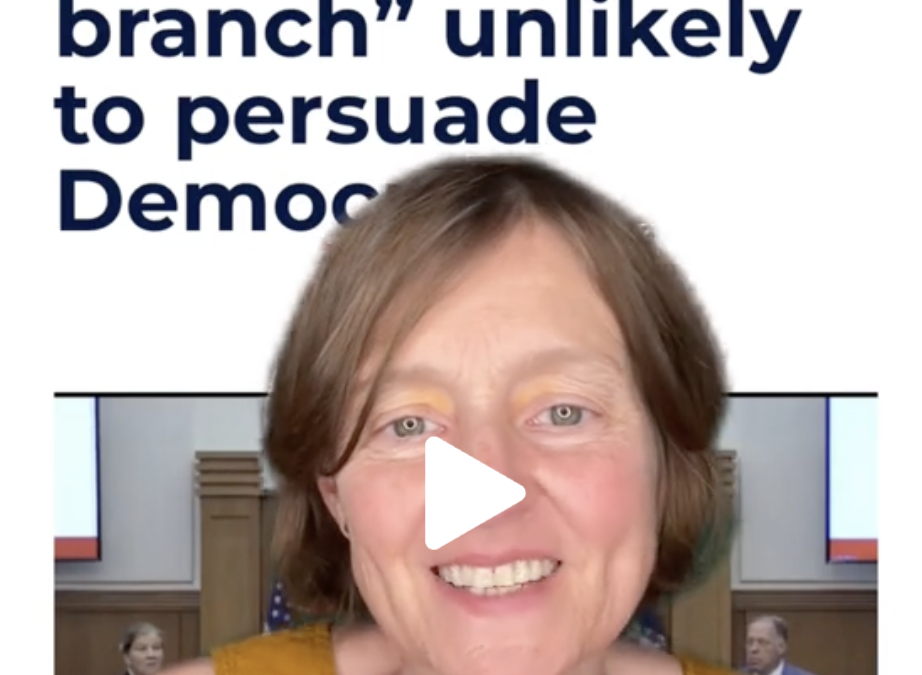
Analysts, industry experts say Virginia can survive the economic downtown and recover.
RICHMOND – Coronavirus ravaged Virginia this year. As of Dec. 4, the virus infected 247,000 people in the state. Fifteen thousand have been hospitalized, and 4,100 died. The public health impacts are devastating. But the virus also caused an historic economic downturn.
Nearly 350,000 Virginians faced job loss or an involuntary reduction of hours due to the pandemic. This hit folks from marginalized communities hardest, including racial minorities, women, people without a college degree and low-wage workers. These groups often intersect: of Virginians earning less than $20/hour, 55% are women. Only 22% graduated from college.
Moody’s Analytics forecasts that Virginia won’t return to full employment until late 2023. Just as impacts of the pandemic weren’t felt equitably, nor will the economic recovery. While urban regions of the state, including northern Virginia, Hampton Roads and Richmond, are expected to rebound by 2023, Moody’s projects that more rural regions may not reach full employment until 2025.
As Virginia Economic Development Partnership President and CEO Stephen Moret explained, even when Virginia’s economy roars back, it will look very different than pre-pandemic. Moret kicked off the Virginia Chamber’s Economic Summit & Forum on World Trade Friday morning with a presentation on positioning the state for recovery.
More than 700 people tuned in to the virtual event to hear from economic development experts, corporate executives and foreign trade professionals about the day’s main theme: building economic resilience in Virginia.
Virginia Has the Foundation
Although the situation feels bleak in Virginia, as case rates continue to spike and thousands are filing for unemployment insurance weekly, Moret painted a hopeful picture. In his view, Virginia “is a leader in many of the sectors that are poised to experience strong growth” after the pandemic.
Some industries, such as hospitality, nonessential retail and food service, are unlikely to bounce back to pre-pandemic levels of employment. As Warren Thompson, president of Thompson Hospitality Corporation, described during one panel, “Most organizations have been working on becoming more efficient.” The pandemic, he said, is going to accelerate these “efficiency” efforts. Thompson predicted that the average restaurant will reduce its square-footage by 40-50%. Takeout and delivery will endure as popular options. “Customers now are going to demand better food on the fly,” Thompson said, meaning restaurants may need to adjust with less seating space and more delivery mechanisms.
Moret said Virginia can adapt to this new economy, though. The state presents opportunities for manufacturer reshoring, digitization, teleworking and retraining in skilled trades, he said.
Why Virginia?
Many employers have implemented work flexibility plans during the pandemic to keep employees safe and healthy. Moret predicted that this transition to telework will continue after the public health threat has resolved. He said Virginia, which Forbes recently ranked the #1 state in the country for employee quality of life, is an attractive place for folks to work-from-home.
During a “Why Virginia?” panel about the state’s top assets in terms of attracting new businesses and employees, participants delineated various strengths. Virginia is investing in skilled workforce development, they said. It’s located near ports and Washington, D.C. It offers myriad opportunities for outdoor recreation and it has strong educational institutions from Kindergarten all the way through college.
Although the goal is “near ubiquitous broadband access,” which especially the state’s more rural localities have struggled to achieve, Moret said investment in broadband infrastructure has also been encouraging.
Broadening the Economic Scope
Much of the programming Friday looked beyond the state’s borders, though, and emphasized the importance of international trade relationships for Virginia’s recovery.
President of the National Foreign Trade Council Rufus Yerxa delivered the keynote address. Yerxa pointed out that 95% of consumers live outside the United States, making foreign trade essential to Virginia’s continued economic growth. The state exported $19 billion in goods over the past year. Yerxa rebuked rhetoric “about how trade has been bad for the American economy…The reality tells a different tale,” he said.
He criticized the Trump administration for its lack of commitment to maintaining relationships abroad and for its weaponization of tariffs.
“Nearly 20% (of imports) are now subject to significantly increased tariffs as a result of the wars President Trump started with China and a number of our good allies,” Yerxa said. Furthermore, the strategy was an utter failure. The United States’ trade deficit increased over the past four years, as did prices for everyday consumers.
Yerxa urged President-elect Biden’s administration to focus on repairing those relationships and leveraging its influence at the World Trade Organization.
Maintaining strong international trade makes Virginia businesses more resilient, according to participants on the day’s final panel.
KEEP UP WITH VIRGINIA: Sign Up For Dogwood’s Daily Newsletter
Stronger Together
Suzanne Saraya, international sales manager for ExploreLearning in Charlottesville, explained how the worldwide market helped the company grow. ExploreLearning offers instructional materials for math and science. “Thankfully, gravity doesn’t change, no matter where you go,” Saraya said. Asia has 600 million students in the K-12 market, she said, which eclipses the potential American market by a factor of 10.
David Klain, a senior principal and vice president at Dynamis, likewise emphasized the importance of international clients. Dynamis is a Fairfax-based software company that fulfills federal defense contracts. However, the nature of politics in Washington means these contracts are often uncertain—renewals depend on partisan whims. During the pandemic, Dynamis offered a “skinny” version of its software to international clients building crisis response plans. The software could be deployed in 96 hours and focused solely on functions necessary for crisis management. Additional markets like these help Dynamis establish reliable revenue streams. Klain said international business is about 15% of the company’s revenue now. He projected it will eventually reach 35%.
The Virginia Chamber launched Blueprint Virginia 2030 at Friday’s summit. The document will offer political leaders input on policy from across the business community. The number one goal of the proposed policies, Moret explained, is “to strengthen Virginia’s reputation as the best state in which to do business.” If you’d like to be involved in the Blueprint 2030 process, contact [email protected].
Ashley Spinks Dugan is a freelance reporter for Dogwood. You can reach her at [email protected].
Politics

Virginia NAACP to sue Youngkin over handling of DEI records requests
The civil rights group said it would take Youngkin to court for not releasing communications between his office and state universities related to...

VIDEO: After vetoes, Youngkin’s budget “olive branch unlikely to persuade Democrats
Can the Democrats in the General Assembly and Republican Gov. Glenn Youngkin really find "common ground" among his proposed state budget amendments?...
Local News

Virginia verses: Celebrating 5 poetic icons for National Poetry Month
There’s no shortage of great writers when it comes to our commonwealth. From the haunting verses of Edgar Allan Poe, who found solace in Richmond's...

Join the fun: Recapping Family Literacy Night’s storybook adventures
When’s the last time you read a book aloud with a loved one? If it’s difficult to answer that question, then maybe it’s time to dust off that TBR...




